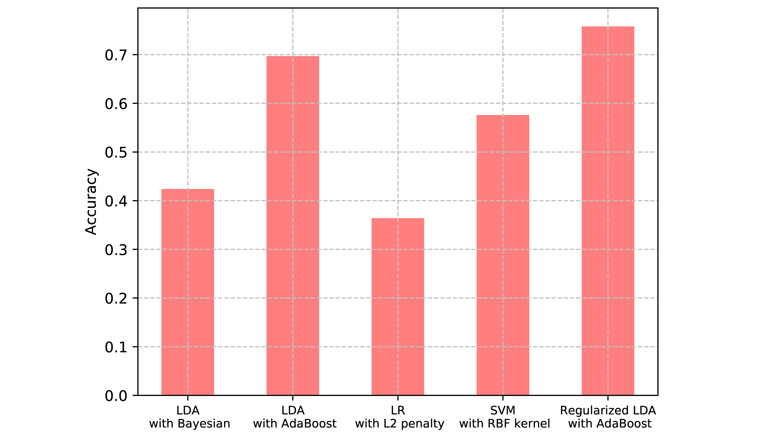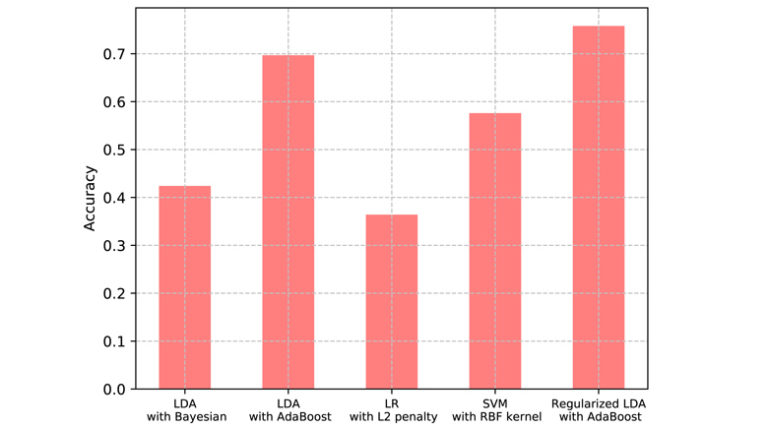
This paper proposes a robust method for the Alzheimer’s disease (AD), mild cognitive impairment (MCI), and normal control subject classification under size limited fMRI data samples by exploiting the brain network connectivity pattern analysis. First, we select the regions of interest (ROIs) within the default mode network and calculate the correlation coefficients between all possible ROI pairs to form a feature vector for each subject. Second, we propose a regularized linear discriminant analysis (LDA) approach to reduce the noise effect due to the limited sample size. The feature vectors are then projected onto a one-dimensional axis using the proposed regularized LDA. Finally, an AdaBoost classifier is applied to carry out the classification task. The numerical analysis demonstrates that the purposed approach can increase the classification accuracy significantly. Our analysis confirms the previous findings that the hippocampus and the isthmus of the cingulate cortex are closely involved in the development of AD and MCI.

